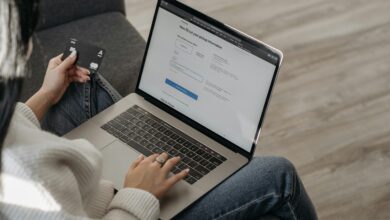How To Stop Being Broke: 10 Realistic Steps That Actually Work

Let’s be real for a second. You’re tired of checking your bank account and feeling that sinking feeling in your stomach. You work hard, put in the hours, and yet somehow, you’re still struggling to make ends meet. Sound familiar?
Here’s the thing: being broke isn’t always about how much you earn. I’ve seen people making six figures who are still living paycheck to paycheck, and I’ve met folks with modest incomes who have built impressive savings. The difference? They know how to manage their money.
If you’re ready to finally break free from the cycle of financial stress, you’re in the right place.
I’m going to walk you through the exact steps that can transform your financial situation. No fluff, no get-rich-quick schemes, just practical advice that works.
What Does Being Broke Actually Look Like?
Before we jump into solutions, let’s talk about the warning signs. Sometimes we’re so caught up in the daily grind that we don’t realize how bad things have gotten. Recognizing these red flags is the first step toward change.
1. You’re Stuck in the Paycheck-to-Paycheck Trap
This is probably the biggest indicator that something’s wrong with your finances. If you’re counting down the days until payday and your account is running on fumes by the end of each month, you’re in trouble.
Here’s what’s scary: studies show that over 60% of Americans live this way. They earn money, spend it all, and then wait anxiously for the next paycheck. It’s exhausting, stressful, and honestly? It’s no way to live.
When you’re trapped in this cycle, you’re basically running on a financial treadmill. You’re working hard but getting nowhere. Every month feels like Groundhog Day, and you can’t seem to break free.
2. Your Savings Account is Gathering Dust (Or Doesn’t Exist)
Let me guess: you keep telling yourself you’ll start saving next month, right? But next month comes, unexpected expenses pop up, and suddenly there’s nothing left to save.
If you don’t have any money set aside for emergencies or future goals, you’re essentially living on the edge of a financial cliff. One unexpected car repair or medical bill could send you spiraling into debt.
The reality is that without savings, you’re not just broke now, you’re setting yourself up to stay broke. Harsh? Maybe. But it’s the truth.
3. Money Worries Keep You Up at Night
Ever find yourself lying awake at 2 AM, mentally calculating whether you can afford groceries AND gas this week? That’s not normal, and it’s definitely not healthy.
Financial stress is one of the leading causes of anxiety and depression. When you’re constantly worried about money, it affects everything: your relationships, your work performance, your physical health, and your mental well-being.
Rich people don’t lose sleep over whether they can pay their electric bill. If you do, it’s a clear sign that your finances need serious attention.
4. Your Life Looks the Same Year After Year
Take a look around. Are you still driving the same beat-up car you bought five years ago? Still living in that cramped apartment you promised yourself was temporary? Still wearing clothes that have seen better days?
If your quality of life hasn’t improved over time, that’s a problem. Life should get better as you gain experience and grow in your career. If you’re stagnant, your money situation is holding you back.
Growth isn’t just about buying fancy things. It’s about having options, feeling secure, and being able to invest in your future and your family’s future.
5. You Can’t Afford to Be Generous
One of life’s greatest joys is being able to help others. Whether it’s buying coffee for a friend, donating to a cause you care about, or helping out a family member in need, generosity feels good.
But when you’re broke, you can’t afford to be generous. You’re so focused on your own survival that there’s nothing left to give. And honestly? That’s a pretty miserable way to live.
Financial freedom isn’t just about having enough for yourself. It’s about having enough to share, to give, and to make a positive impact on the people around you.
How To Stop Being Broke And Take Charge Of Your Finances
Alright, enough with the doom and gloom. Let’s talk solutions. These aren’t quick fixes or magic tricks. They’re proven strategies that require effort and commitment. But if you’re serious about changing your financial situation, these steps will get you there.
1. Fix Your Money Mindset First

I know, I know. This sounds like that self-help nonsense you’ve heard a million times. But hear me out, because this is actually important.
Your mindset shapes your reality. If you constantly tell yourself “I’m terrible with money” or “I’ll never get ahead,” guess what? You won’t. Those negative beliefs become self-fulfilling prophecies.
I’ve worked with countless people who had the same income but wildly different financial outcomes. The difference? Their attitude toward money. The ones who believed they could improve their situation actually did. The ones who played the victim stayed stuck.
Here’s what you need to do: grab a notebook and write down all your negative money beliefs. Every single one. “Rich people are greedy.” “I don’t deserve to be wealthy.” “Money is the root of all evil.” Whatever toxic thoughts are floating around in your head.
Then, next to each negative belief, write a positive counter-statement. “Wealth allows me to help others.” “I deserve financial security.” “Money is a tool that gives me freedom.”
Read these positive statements daily. It might feel silly at first, but you’re literally rewiring your brain. And trust me, it works.
2. Take Full Responsibility for Your Finances
This one’s tough to hear, but it’s crucial: your financial situation is your responsibility. Not your employer’s, not the government’s, not your parents’, not the economy’s. Yours.
I get it. Sometimes life throws curveballs. Medical emergencies, job losses, unexpected expenses, these things happen. But even when external circumstances create problems, you’re the only one who can solve them.
Blaming others might make you feel better temporarily, but it keeps you powerless. When you accept responsibility, you reclaim your power. You become the author of your own financial story instead of a victim of circumstances.
This means acknowledging your mistakes. Did you rack up credit card debt buying things you didn’t need? Own it. Did you ignore your budget and overspend? Admit it. Did you turn down opportunities to increase your income because they seemed too hard? Face it.
Once you stop making excuses and start taking ownership, everything changes. You move from “I can’t” to “How can I?” And that shift is everything.
3. Create a Budget That Actually Works

If you don’t have a budget, you’re basically driving blindfolded. You have no idea where your money is going, which means you have no control over your finances.
Now, I know budgeting sounds boring. It sounds restrictive. But here’s the truth: a budget doesn’t limit your freedom, it creates it. When you know exactly where your money is going, you can make intentional choices instead of wondering where it all went.
Start by tracking every single dollar you earn. Write down your salary, any side income, tax refunds, birthday money from grandma, everything.
Next, list all your expenses. And I mean ALL of them. Rent, utilities, groceries, insurance, debt payments, subscriptions, coffee runs, impulse Amazon purchases, the whole shebang. Go through your bank statements from the past three months to get an accurate picture.
Now comes the important part: subtract your expenses from your income. If the number is negative, you’re spending more than you earn. That’s your problem right there.
The goal is to ensure your expenses are lower than your income, with room left over for savings. If they’re not, you need to either cut expenses or increase income. Preferably both.
There are tons of budgeting methods out there. The 50/30/20 rule (50% needs, 30% wants, 20% savings) is popular. The zero-based budget assigns every dollar a job. Find what works for you and stick with it.
4. Embrace Frugal Living (Without Feeling Deprived)
Let’s clear something up: being frugal doesn’t mean being cheap or miserable. It means being intentional with your spending and getting maximum value for your money.
When I first started getting serious about my finances, I thought I’d have to give up everything I enjoyed. No more coffee shops, no more eating out, no more fun. But that’s not what frugal living is about.
It’s about cutting the waste, not the joy. It’s about spending on what truly matters to you and eliminating what doesn’t.
Look at your spending categories. Where are you hemorrhaging money on things that don’t actually improve your life? For most people, it’s subscriptions they don’t use, convenience purchases, and mindless shopping.
Here are some practical ways to cut costs without feeling like you’re living in poverty:
- Cancel unused subscriptions: That gym membership you haven’t used in six months? Gone. Streaming services you barely watch? Pick one and ditch the rest.
- Shop with a list: Never go to the store without a specific plan. Wandering aimlessly leads to impulse buys you’ll regret.
- Use the 24-hour rule: Before making any non-essential purchase, wait 24 hours. You’ll be surprised how often the urge passes.
- Buy generic brands: For most products, the store brand is identical to the name brand but costs significantly less.
- Master the art of saying no: You don’t have to attend every social event or keep up with everyone else’s spending.
Being frugal is actually empowering. Every dollar you don’t waste is a dollar you can save or invest in something that truly matters.
5. Use Coupons and Cashback Apps (Yes, Really)
I used to think couponing was for extreme penny-pinchers who spent hours clipping newspaper ads. Then I discovered how much money I was leaving on the table by not using them.
Modern couponing isn’t about scissors and Sunday papers. It’s about smart apps that do the work for you. Apps like Ibotta, Fetch Rewards, and Rakuten give you money back on purchases you’re already making.
Here’s how it works: you’re buying groceries anyway, right? Instead of just paying full price like a chump, you scan your receipt with Ibotta and get cash back. It takes literally 30 seconds.
Or you’re shopping online. Before checking out, you activate Rakuten, and boom, you get a percentage back. It’s free money for doing what you were already going to do.
I know it seems like small amounts. A dollar here, two dollars there. But it adds up faster than you think. I’ve saved hundreds of dollars annually just by using these apps consistently.
FYI, every dollar saved is a dollar earned. Don’t leave money on the table just because you think it’s not worth the effort.
6. Stop Throwing Money Away on Takeout

Let me paint you a picture: you’re tired after work, you don’t feel like cooking, so you order takeout. Twenty-five bucks for a meal that would’ve cost you eight dollars to make at home. No big deal, right?
Wrong. Do that three times a week, and you’re spending an extra $200+ per month. That’s $2,400 a year. On convenience.
Look, I’m not saying you can never eat out. I’m saying that making it a habit is one of the fastest ways to stay broke. Restaurant markups are insane, delivery fees are ridiculous, and you’re paying for convenience you can’t afford.
The solution? Meal planning. I know it sounds boring, but it’s a game-changer.
Every Sunday, plan your meals for the week. Make a shopping list based on those meals. Buy only what’s on the list. Then prep as much as you can in advance.
When you come home tired, you’ll have ingredients ready to go or even pre-made meals you just need to heat up. The temptation to order out disappears when you have food ready.
Plus, cooking at home is usually healthier, so you’re improving your health while saving money. Win-win.
7. Build an Emergency Fund (Your Financial Life Raft)
If you don’t have an emergency fund, you’re one crisis away from financial disaster. That’s not being dramatic, that’s just reality.
Your car breaks down. Your kid needs emergency dental work. You lose your job. These things happen to everyone eventually. The question is: will you be prepared, or will you go into debt?
An emergency fund is your financial safety net. It’s the buffer between you and financial catastrophe. Without it, every unexpected expense becomes a crisis.
Here’s what you need to do: start small. If saving three to six months of expenses sounds impossible, start with $500. Then $1,000. Then keep building.
Put this money in a separate savings account that you don’t touch unless it’s a genuine emergency. And no, a sale at your favorite store is not an emergency. 🙂
Every time you get paid, transfer something to this account. Even if it’s just $20. The amount matters less than the habit. You’re training yourself to prioritize savings.
Once you have that cushion, your entire relationship with money changes. You stop living in constant fear because you know you can handle whatever comes your way.
8. Try a No-Spend Challenge
This one sounds extreme, but it’s incredibly effective for breaking bad spending habits and resetting your relationship with money.
A no-spend challenge is exactly what it sounds like: for a set period (a week, two weeks, a month), you don’t spend money on anything except absolute necessities. No eating out, no shopping, no entertainment purchases, nothing.
The first time I did this, I was shocked by how much I was spending without even thinking about it. Coffee here, snacks there, random Amazon purchases, it all added up to way more than I realized.
When you force yourself to stop spending, two things happen. First, you break the autopilot spending pattern. You become conscious of every purchase instead of mindlessly swiping your card.
Second, you realize how much of your spending is pure habit rather than actual need. You don’t need that daily coffee shop visit. You don’t need to browse online stores when you’re bored. You don’t need to buy something every time you leave the house.
Start with a realistic goal. If you’ve never done this before, try a week. Set clear rules about what counts as necessary (rent, groceries, medicine) and what doesn’t (everything else).
At the end of the challenge, look at how much you saved. That number will probably surprise you. And it’ll show you exactly how much money you’ve been wasting.
9. Ask for a Raise (You Deserve It)
Here’s something most people don’t want to hear: if you’re underpaid and you never ask for more, that’s partly on you.
I know asking for a raise is scary. Nobody wants to seem greedy or risk upsetting their boss. But if you’re consistently delivering value and you haven’t had a raise in years, you’re basically giving your employer a discount on your labor.
Before you march into your boss’s office, do your homework. Research what people in similar positions make in your area. Document your accomplishments and the value you’ve brought to the company. Come prepared with specific examples and numbers.
Then, schedule a meeting specifically to discuss compensation. Don’t ambush your boss in the hallway or bring it up during a random conversation.
Present your case professionally. Focus on your contributions, not your financial needs. Your boss doesn’t care that you need money for bills. They care about whether you’re worth the investment.
If they say no, ask what you need to do to earn a raise. Get specific criteria and a timeline. Then deliver on those expectations and follow up.
And honestly? If you’re consistently denied fair compensation despite strong performance, it might be time to look for a better opportunity elsewhere. Loyalty is great, but not when it’s keeping you broke.
10. Turn Your Hobby Into Income
Want to know the best way to increase your income without getting a second job? Monetize something you already enjoy doing.
Think about it: you probably spend time on hobbies anyway. What if that time could also generate income? You’re not adding more work to your schedule, you’re just making your existing activities profitable.
Are you good at baking? Start selling custom cakes or cookies. Love photography? Offer portrait sessions or sell prints. Enjoy crafting? Open an Etsy shop. Good at writing? Freelance on the side.
The beauty of hobby income is that it doesn’t feel like work because you genuinely enjoy it. Plus, you’re already skilled at it, so there’s minimal learning curve.
I started my own side income by doing something I was already passionate about. It didn’t feel like a burden because I loved doing it anyway. And that extra money made a huge difference in my financial situation.
Start small. You don’t need to build a massive business overnight. Just test the waters. Offer your services to friends and family first. Get feedback, improve, and gradually expand.
Even an extra $200-500 per month can transform your finances. That’s money you can put toward debt, savings, or investments. And it comes from doing something you actually enjoy.
11. Get Out of Debt (The Bonus Game-Changer)
Debt is like a financial vampire, constantly sucking money out of your paycheck before you even see it. If you’re serious about learning how to stop being broke, eliminating debt needs to be a top priority.
Every month, a chunk of your income goes toward paying interest on past purchases. That’s money you can’t save, invest, or use to improve your life. It’s just gone, forever.
The psychological weight of debt is also crushing. It hangs over you constantly, creating stress and limiting your options. You can’t take risks or pursue opportunities because you’re chained to those monthly payments.
So how do you escape? You need a strategy. Just throwing random amounts at your debt won’t cut it. You need a systematic approach.
The debt avalanche method focuses on paying off your highest-interest debt first while making minimum payments on everything else. Mathematically, this saves you the most money on interest.
The debt snowball method focuses on paying off your smallest debt first, regardless of interest rate. This gives you quick wins that build momentum and motivation.
Both methods work. Pick the one that fits your personality. If you need motivation from quick wins, go with the snowball. If you want to optimize for maximum savings, choose the avalanche.
Whatever method you choose, commit to it. Make it a non-negotiable part of your budget. Every extra dollar you can squeeze out of your budget goes toward debt.
And once you’re debt-free? That feeling is incredible. Suddenly, your entire paycheck is yours. You can breathe. You have options. Your financial life opens up in ways you couldn’t imagine when you were drowning in payments.
Creating Your Action Plan
Alright, so you’ve got all this information. Now what? Information without action is useless, so let’s talk about actually implementing these strategies.
Don’t try to do everything at once. That’s overwhelming and sets you up for failure. Instead, pick two or three strategies to start with. Master those, then add more.
I recommend starting with budgeting and cutting unnecessary expenses. These give you immediate results and create the foundation for everything else.
Set specific, measurable goals. Not “I want to save money,” but “I will save $1,000 in the next three months.” Not “I’ll spend less,” but “I’ll reduce my eating out budget from $300 to $100 per month.”
Track your progress. Use an app, a spreadsheet, or a notebook. Just document where you are and where you’re going. Seeing progress is incredibly motivating.
Find an accountability partner. Tell someone about your goals and check in regularly. It’s harder to give up when someone else is watching your progress.
Expect setbacks. You’ll have bad months. You’ll make mistakes. You’ll be tempted to give up. That’s normal. What matters is getting back on track instead of using one setback as an excuse to quit entirely.
The Mindset for Long-Term Success
Here’s what nobody tells you about personal finance: it’s not really about money. It’s about discipline, patience, and delayed gratification.
Our culture is obsessed with instant results. We want to lose weight in a week, get rich overnight, and solve all our problems with one simple trick. But real financial transformation doesn’t work that way.
Getting your finances in order is more like getting in shape than winning the lottery. It requires consistent effort over time. Small daily choices that compound into significant results.
Some months, you’ll feel like you’re not making progress. Your savings will grow slowly. Your debt will decrease gradually. It’ll feel tedious and frustrating.
But here’s the thing: those small improvements are building momentum. You’re creating habits that will serve you for the rest of your life. You’re building a foundation for lasting financial security.
Think about where you’ll be in a year if you stick with these strategies. Then think about where you’ll be if you don’t change anything. That comparison should motivate you to keep going even when it’s hard.
Financial freedom isn’t about being rich. It’s about having options. It’s about not worrying when unexpected expenses come up. It’s about being able to make choices based on what you want, not just what you can afford.
Common Mistakes to Avoid
As you work on improving your finances, watch out for these common pitfalls that derail people’s progress.
Lifestyle inflation: As your income increases, your spending shouldn’t automatically increase too. When you get a raise, put that extra money toward savings and debt, not a nicer apartment or fancier car.
Comparing yourself to others: Your coworker’s new car or your friend’s vacation has nothing to do with your financial goals. Comparison is the thief of joy and the enemy of financial progress.
Not tracking your spending: You can’t improve what you don’t measure. If you’re not tracking where your money goes, you’re flying blind.
Waiting for the perfect time: There’s no perfect time to start. You’ll never feel completely ready. Start now with what you have and adjust as you go.
Being too restrictive: If your budget is so tight that you’re miserable, you won’t stick with it. Build in some room for enjoyment, just make it intentional.
Ignoring small expenses: Those $3 purchases add up to hundreds per month. Small leaks sink ships, and small expenses destroy budgets.
Resources That Can Help
You don’t have to figure this out alone. There are tons of tools and resources that can make managing your money easier.
For budgeting, apps like Mint, YNAB (You Need A Budget), and EveryDollar can automate much of the tracking process. They connect to your accounts and categorize your spending automatically.
For saving money on purchases, Honey automatically finds coupon codes when you shop online. Rakuten gives you cash back at thousands of stores. Ibotta and Fetch Rewards give you money back on groceries.
For side income, platforms like Fiverr, Upwork, and Etsy make it easy to sell your skills or products online.
For education, websites like NerdWallet, The Balance, and personal finance blogs offer free information on every money topic imaginable.
The tools are out there. You just need to use them.
Final Thoughts
Look, I’m not going to sugarcoat it. Fixing your finances takes work. It requires sacrifice, discipline, and patience. There will be moments when you want to give up, when you’re tired of saying no to things you want.
But here’s what I want you to remember: every single person who has achieved financial stability started exactly where you are now.
They were broke, stressed, and overwhelmed. The only difference between them and people who stay broke is that they decided to change and then followed through.
You have all the information you need right here. The strategies work. I’ve seen them transform countless lives, including my own. But information alone won’t change anything. You have to actually do the work.
Start today. Not tomorrow, not next month, not when you get your next paycheck. Today. Pick one thing from this article and implement it right now.
Create that budget. Cancel that unused subscription. Pack your lunch for tomorrow instead of planning to eat out. Download a cashback app. Whatever it is, just start.
Because here’s the truth: a year from now, you’ll wish you had started today. You can either be a year older with the same money problems, or you can be a year older with a transformed financial situation.
The choice is yours. Choose wisely.
IMO, the best investment you can make is in your own financial education and discipline. Everything else follows from there. You’ve got this!








